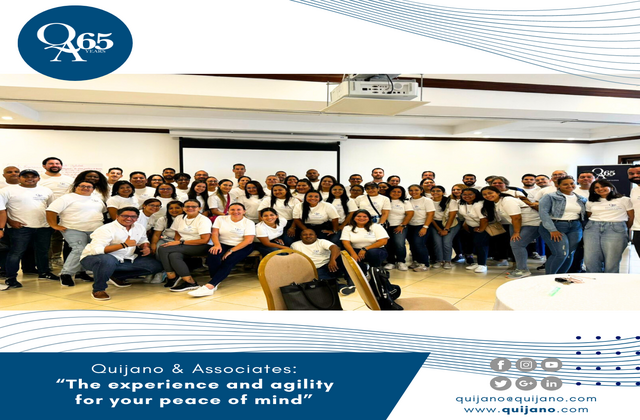Intestancy in Panamanian Law: Procedure before the Courts of Justice

Author: Juan Carlos Caballero Cosaraquis | Associate | Quijano & Associates
Any person who at the time of his/her demise leaves certain rights and obligations that are part of their patrimony and are susceptible to be transferred, by a will or without a will. Article 628 of the Civil Code patrio defines inheritance as a transfers the assets and liability rights that conforms the inheritance of a deceased person to the surviving person, to whom the Law or the testator summons to receive it. The heir will be considered the person who succeeds as universal heir and legatee the person who inherits a specific asset.
In the event of intestacy, we specifically refer to the transfer of a patrimony made to a person when the provision was not stated during the lifetime of the person as his/her last will for the distribution of his/her assets through a will, therefore, under such circumstances the Law will decide to which persons, in a specific order, will be entitled to inherit the assets left by the cujus pursuant to the degree of kinship, as established in Article 646 and the followings of the Civil Code. Up to a certain degree, a succession can be considered ab intestato as a will based on the legal guidelines that will determine who are the apparent heirs of the demised, as if it was his last will.
PRELIMINARY REQUIREMENTS
It is necessary to determine, at least have an approximate of the value of the suit based on the patrimony of the deceased. If the assets of an inheritance surpassed FIVE THOUSAND BALBOAS (B/. 5,000.00), the circuit courts will have jurisdiction to act on the matter. Otherwise sensu, if the assets of an inheritance does not surpass FIVE THOUSAND BALBOAS (B/. 5,000.00) the procedure will be oral and the municipal courts of the last domicile of the deceased will have jurisdiction.
Also, Article 1527 of the Judicial Code establishes the requirements that must be presented along with the suit for any person interested in requesting an inheritance hearing.
A. Evidence of the death of the person that owned the patrimony: It is evidenced by a death certificate issued by the Civil Registry.
B. Notarial certification of the notary or notaries of place of domicile of the deceased in the Republic of Panama certifying that no will was granted by any of them. The Notary Office(s) of the place of domicile of the deceased must be visited in order for the Notary to certify, with his/her seal and signature that said person did not grant any will whatsoever.
C. Full evidence of the kinship on which the plaintiff basis his/her right, for example, if it is an offspring that requests the suit of the intestate inheritance, by a birth certificate issued by the Civil Registry.
JUDICIAL PHASE
Once the suit has been submitted to the competent court of justice, the steps to be followed are the following:
A. Along with the suit must be requested the beginning of the inheritance hearing, pursuant to the arguments submitted in the suit.
B. The court will analyze the suit, based on the rights submitted by the plaintiff and will admit it or order its correction in the event that it should have defects.
C. If the suit is admitted, it will be forwarded to the Justice Department for a period of five (5) days. In the event that the Agent of the Justice Department, overpassed the period for its forwarding without submitting any objection, the Judge will demand the immediate return of the file, and issue a writ declaring the inheritance as it is established in Article 1530 of the Judicial Code.
The writ must include the following:
1.- The opening statement of the intestacy suit.
2.- The statement declaring the heir, without prejudice to third parties, of the persons that have evidenced their right.
3.- The order to appear due to having the right at the process by all personas that have an interest in the suit, including the representative of the tax authority.
D. An Edict of the resolution must be published, wherein is stated the writ declaring the heirs listed ut supra for a period of three (3) days, in a newspaper of national circulation, as established in Article 1510 and 1531 of the Judicial Code. Said edict will remain for a period of ten (10) days at the court for all parties that have a right to the matter to appear. If within the next ten (10) days any person appears that proves his/her right to be considered as an heir in the inheritance suit, then such person will be considered an heir, pursuant to his/her status of kinship, of the assets of the patrimony of the cujus. In the event that a person appears at the court to be considered as an heir, is declared out of the term granted by the Law, he/she may exercise his/her rights through an incident against the already recognized heirs, provided, that the adjudication writ has not been executed.
E. Once having transpired the events stated a priori, the following phase is pertaining to the diligence of inventory and appraisal, which may be judicial or extrajudicial. The inventory will be judicial when there are minors, disabled or absent persons amongst the heirs, and will be extrajudicial when all of the heirs may freely dispose of their assets and are present. The inventory and appraisal process will include all of the assets the demised owned at the time of his/her death, for example: properties, shares, securities, bank accounts, vehicles, livestock, money, personal jewels, etc.
The court will set a date on which the inventory and appraisal procedure must be carried out, during which the following persons will participate: the court’s expert, the heirs’ expert, actuary witnesses and the legal attorneys. Once the procedure of inventory and appraisal has ended, a document must be delivered, which must be signed by all of the parties that participated in the procedure, which will list all of the results obtained from the procedures and it will be delivered to the court.
F. Once the court has received the inventory and appraisal document, it will be forwarded to the interested parties for a period of three (3) days, for the objections considered convenient to be submitted (if any). The objections to the inventory has the purpose of adding or modifying it to include new assets or to exclude those that are considered mistakenly included.
G. The inventory and appraisal procedure having concluded, the court will proceed to issue a resolution consisting of the writ of the awarding and, as its name indicates, will proceed to award to the declared heirs the assets of the deceased, which consists of the assets that were included in the inventory of the aforementioned procedure. Likewise, those persons that have in their possession, assets belonging to the deceased, must immediately deliver them to the declared heirs. For example, in the case of bank accounts, the Judge will order the bank, by means of a communication with its respective resolution attached, to deliver to the heirs the sums of money to which they are entitled, in the corresponding proportion, or if for example, in the procedures is included any vehicle owned by the deceased, then, once having been awarded to the heirs, a change of ownership at the Municipality and at the Authority of Land Transportation and Traffic (ATT) must be processed.
Also, in the event of real estate included in the inventory and therefore, are part of the assets of the inheritance, the court will order that they be protocolled in a public deed before a notary and registered in the Public Registry of Panama (efecto erga omnes). This act is very important as it seeks for the registry to transfer the property of the demised in favor of the declared heirs, as ordered by the Judge.
Such clarifications are important, since there is a tendency to consider that once the Judge awards the assets to the heirs, the inheritance process has finalized, however, it is necessary for the corresponding authorities (depending on the nature of the assets inherited) to be informed on the changes made to the pertaining properties.
ON THE ASSIGNMENT OF THE MUNICIPALITY
Article 692 of the Civil Code establishes that in absence of persons entitled to inherit pursuant to the provisions of the foregoing chapters, the Municipality where the deceased had his/her last domicile will inherit.
Once the Municipality takes possession of the inherited assets, it will proceed to issue an inheritance judicial statement, awarding itself the assets due to the absence of other heirs.
Our opinion is that the Article cited ut supra could be more specific in its drafting, as it states that the Municipality to inherit is the one of the last domicile of the deceased; it may be interpreted as a foreign municipality having the right to claim the inheritance if the last domicile of the deceased was outside of the Republic of Panama. However, in spite of the foregoing, it is also true that the spirit of the referred to Article must be understood in the sense that the State (Municipality) is the only one who could take possession of the assets its citizens leave available or vacant, we must recall that in this case the Municipality will be considered as an heir apparent, due to being the last that could inherit the vacant inheritance due to the absence of persons with right to inherit as foreseen in the Law.
CONCLUSIONS
We have observed a grosso modo that the intestacy inheritance process tends to be complicated due to all of the judicial procedures it entails, which caused people to seek less complicated, faster and efficient alternatives, such as, for example, to use a trust for inheritance purposes or Panamanian private interest foundation where by means of its regulations the testator may appoint in private and confidentiality those asses to whomever he/she chooses and so avoid an inheritance suit that will be costly, time consuming and public.
Therefore, we recommend those persons who wish to assign their assets to another at the time of their demise, elect to make a will or any of the mechanisms listed above, as soon as possible in order to avoid future legal problems and for their peace of mind. As must be taken into account, that if the rules provided for in the Law on the matter of intestacy are taken into consideration, there will be persons that will inherit the assets of the deceased by right, which may give rise to family feuds, and considering that if the demised him/herself were alive, it is probable that he/she would not be pleased if certain persons inherits his/her assets for various reasons, therefore, it is recommended that the persons who have an interest make time, before it’s too late to hire a lawyer to advise him/her on hereditary matters, and to ensure that once his/her demise occurs, the assets of the inheritance will be distributed according to his/her wish.




